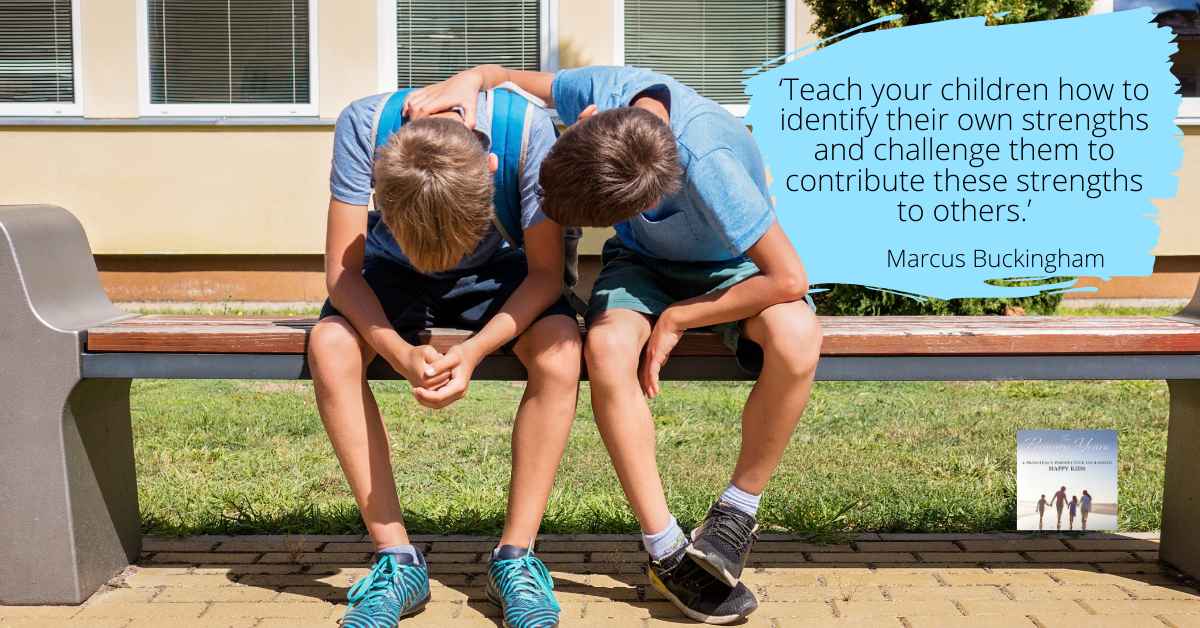We often hear that sticks and stones can break your bones but names can never hurt you. I wonder!
Children are very easily affected by words and negative words will often be the bread and butter of feeling bullied and less secure. Words that are used in haste by parents can also cause distress in children who are frequently seeking and needing your approval. Words that are damaging to a child can be hidden in sentences such as:
“What a silly thing to do.”
You may not have said directly that your child was silly but that is the word that sticks and to the child that is the accusation.
How about when we say:
“That’s a dumb thing to do,” in effect the child thinks that they are dumb.
Teachers are always watching their language to ensure that a child does not misinterpret their words. Once a child feels vulnerable as words have been used that intimidate them, the relationship is damaged. Often teachers quickly recognise that their language was damaging and so go into immediate mode to rectify the problem. Teachers will train themselves to avoid careless words.
Parents naturally speak with much incidental talk around and with their child. Little ears pick it all up and careless words can easily creep into conversations especially when we are disappointed.
“Watch out for the cord on the floor. It would be a silly thing to fall over it.”
Try saying:
“Watch out for the cord on the floor. It is dangerous.”
Avoiding the obvious damaging words is the safest route. Words such as “dumb, silly ridiculous, crazy, mad, etc”. Words that can have connotations that imply the child is incompetent can be damaging.
When working with children I tried to introduce some affirming words. For example:
“Thanks for closing the door quietly as it is an awful sound when it slams.”
It is amazing how the simple affirming positives can take away the edge in conversation. Such positives invite conversations that are not threatening.
Keep in mind the following thoughts:
Better conversation means the relationship is on a healthy path. There is more honesty when a child feels less threatened by negative words.
The use of negative words can mean that the child will shut down from the conversation.
If there is a pattern of using negative words when something goes wrong, will your child approach you?
When very upset allow some time to pass before bringing up the matter. Silence can be golden. It can reduce anger and ensure less damaging conversations will follow.
Finally, think about the times when negative words have been used on yourself. I am sure you will recognise that feeling of loss and frustration. Did the feeling change your opinion of the person speaking the words? How did you respond after the words were used?
“Sticks and stones may break my bones but words can be everlasting.”











